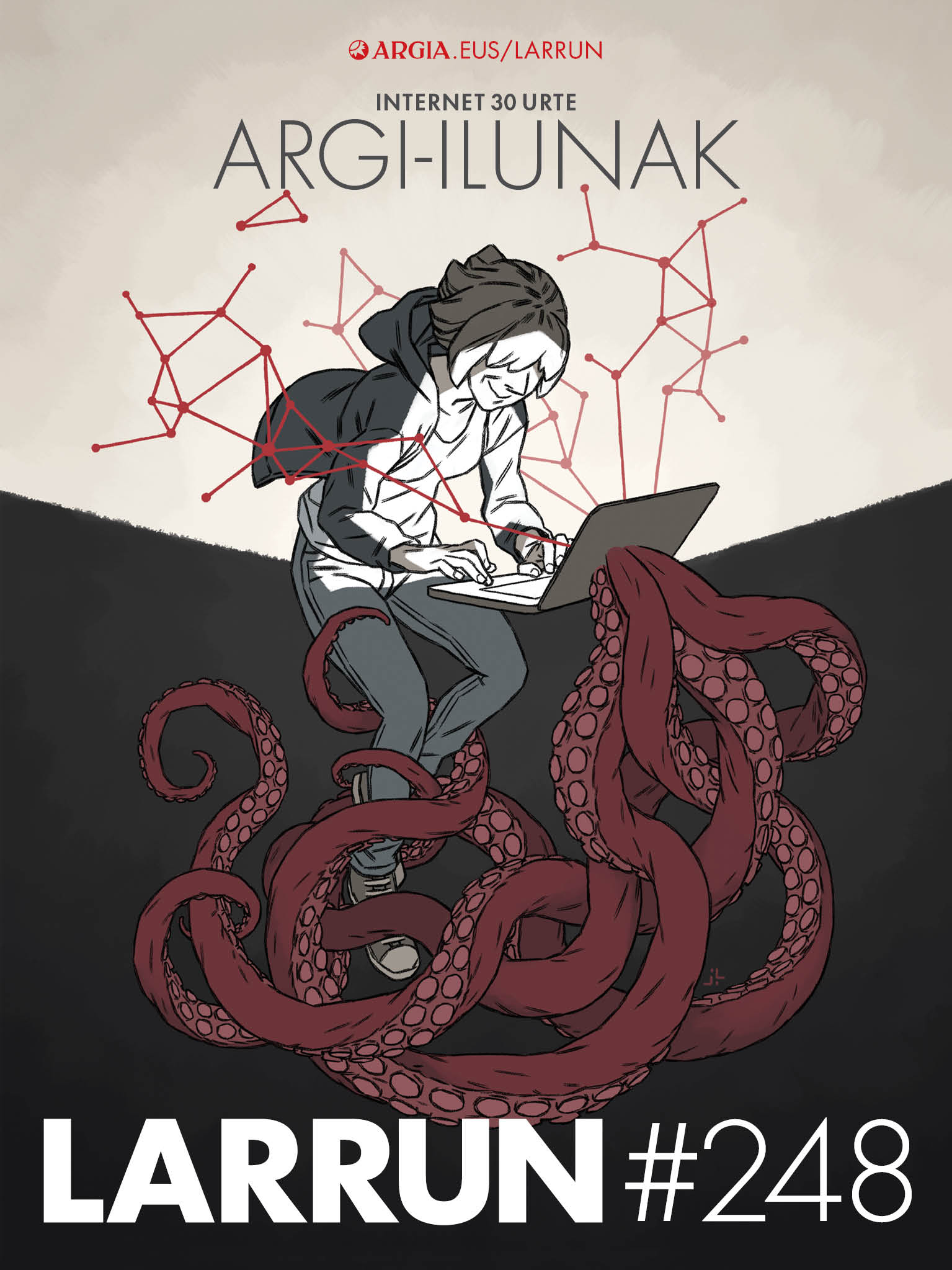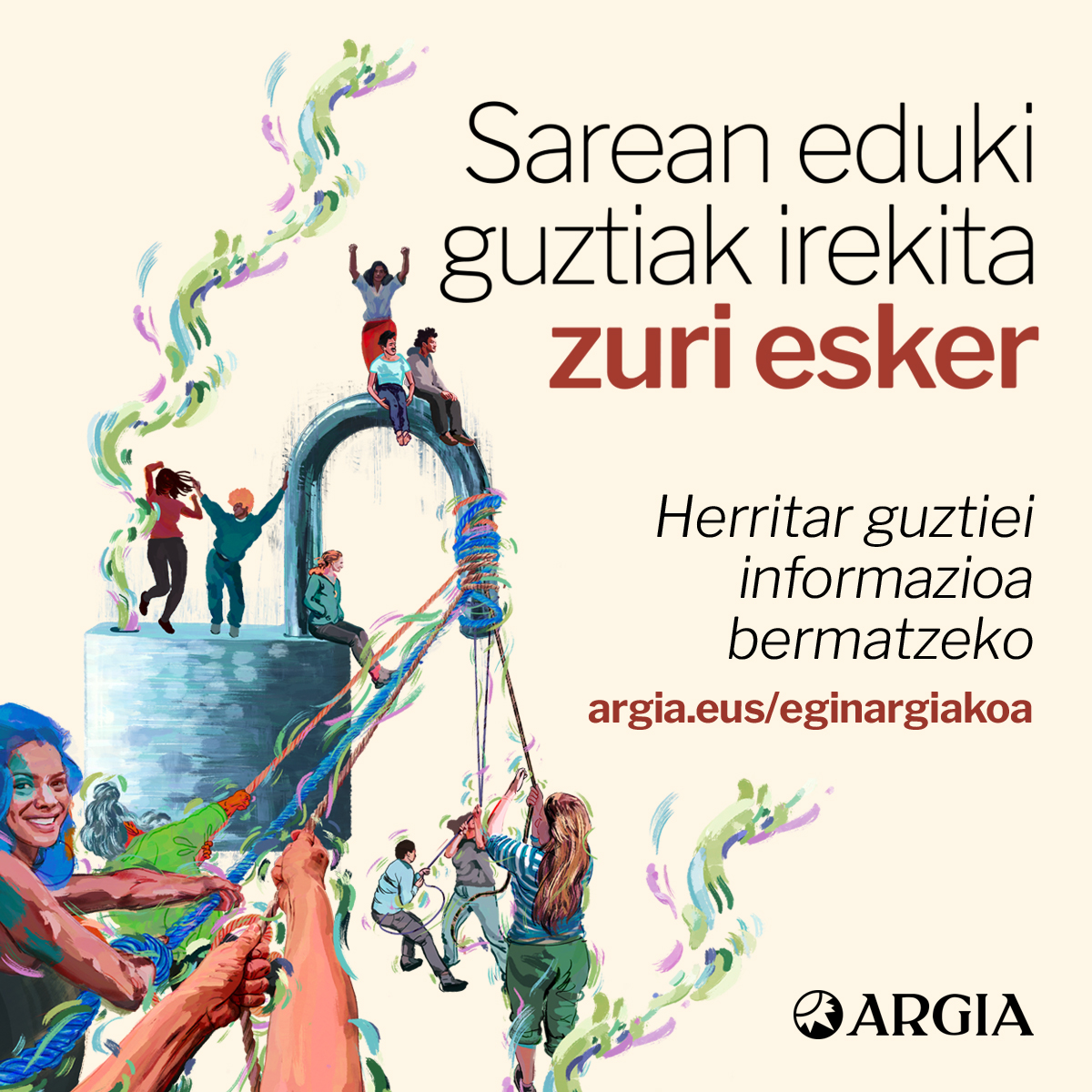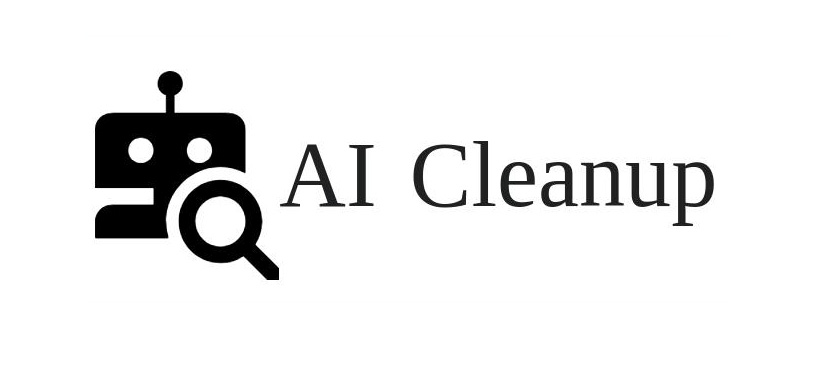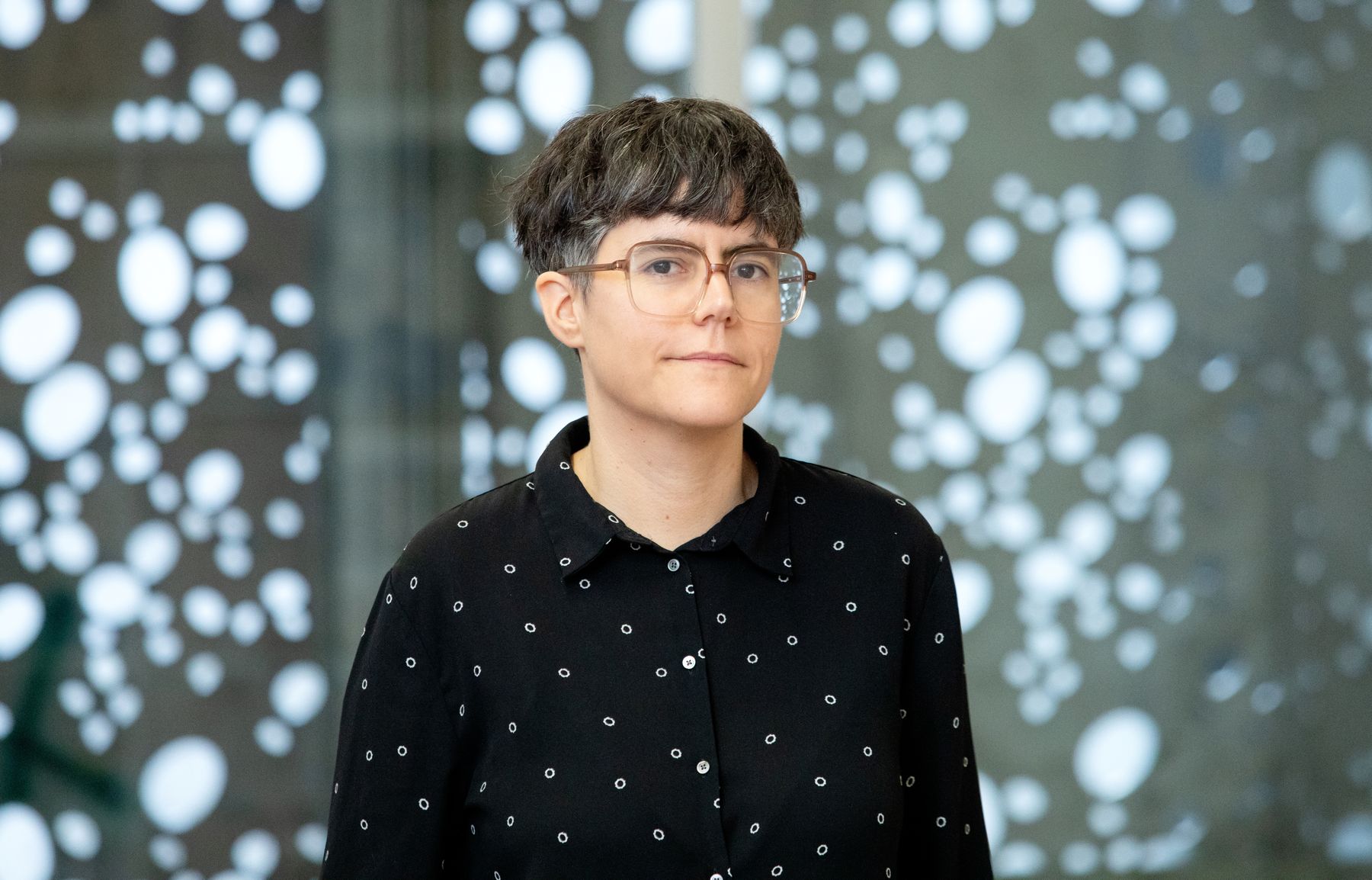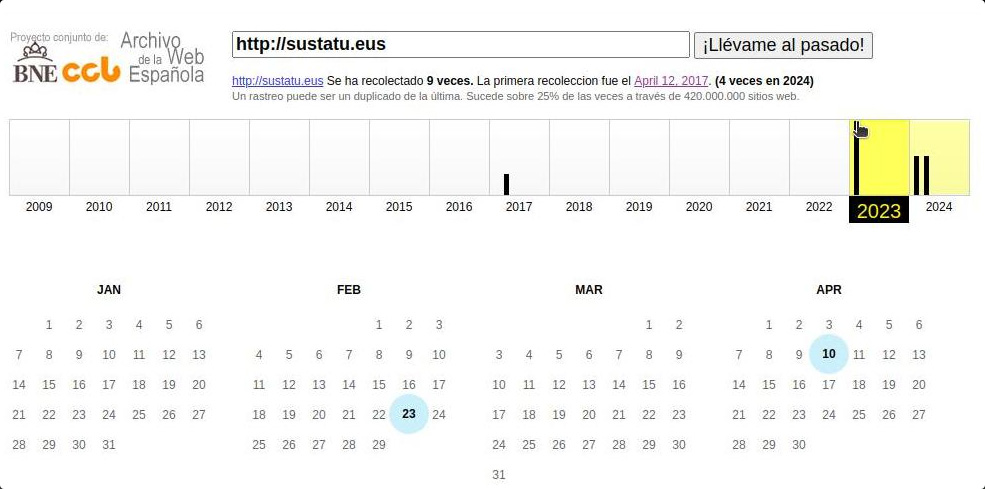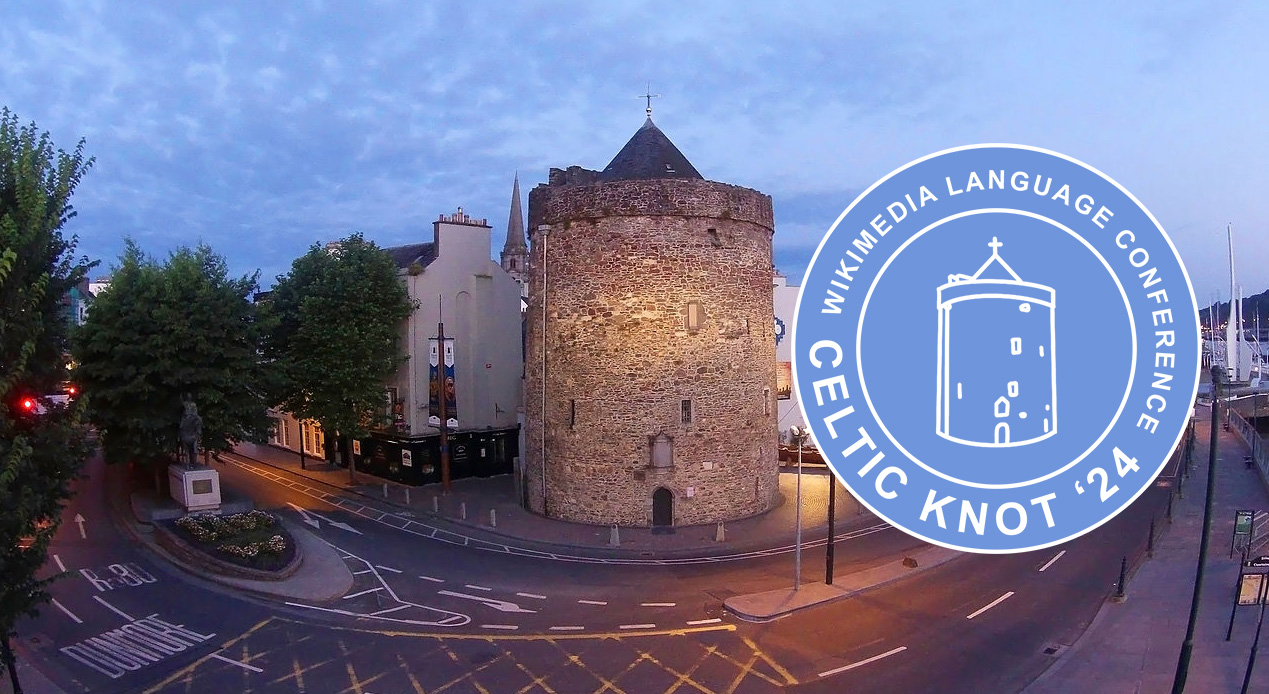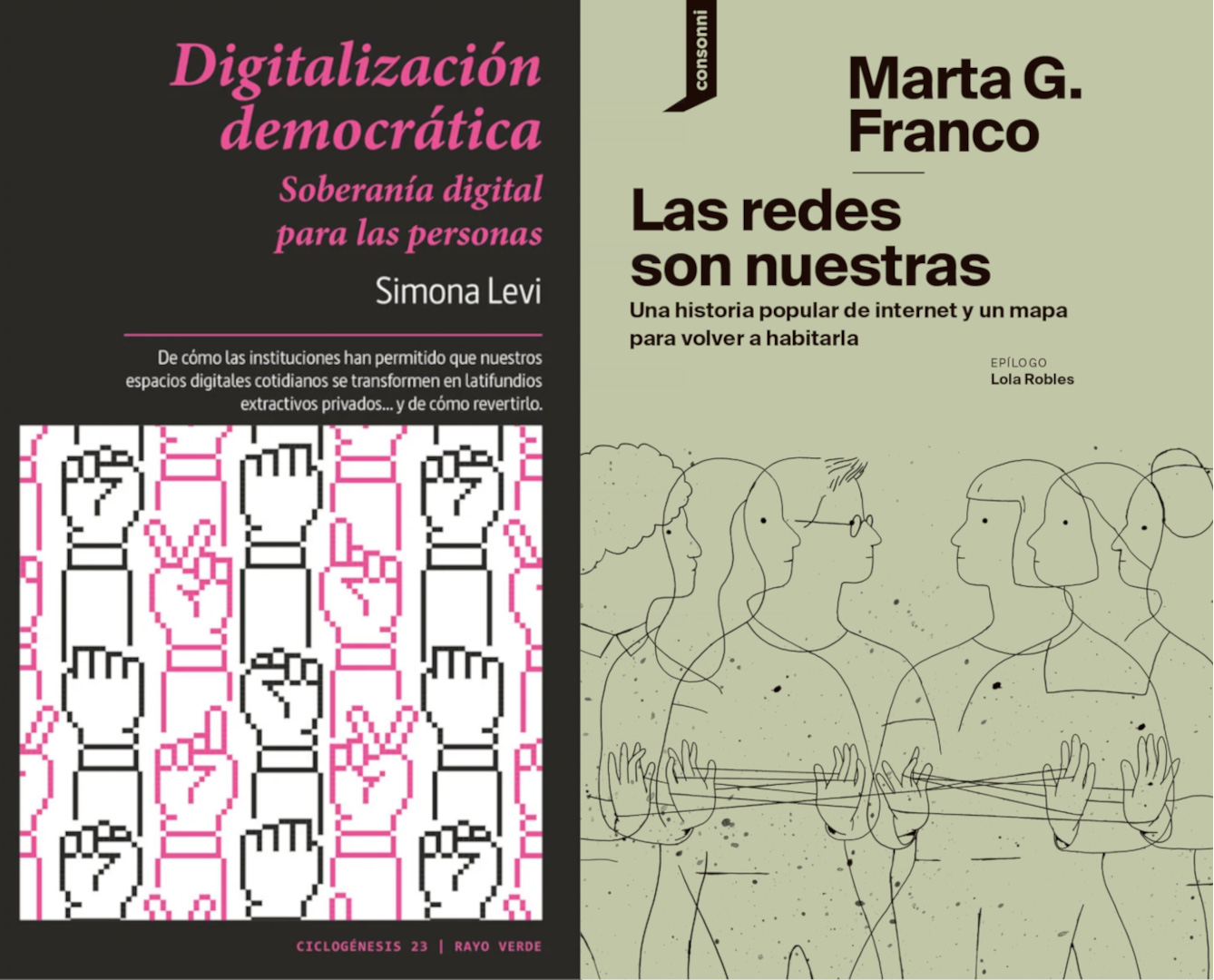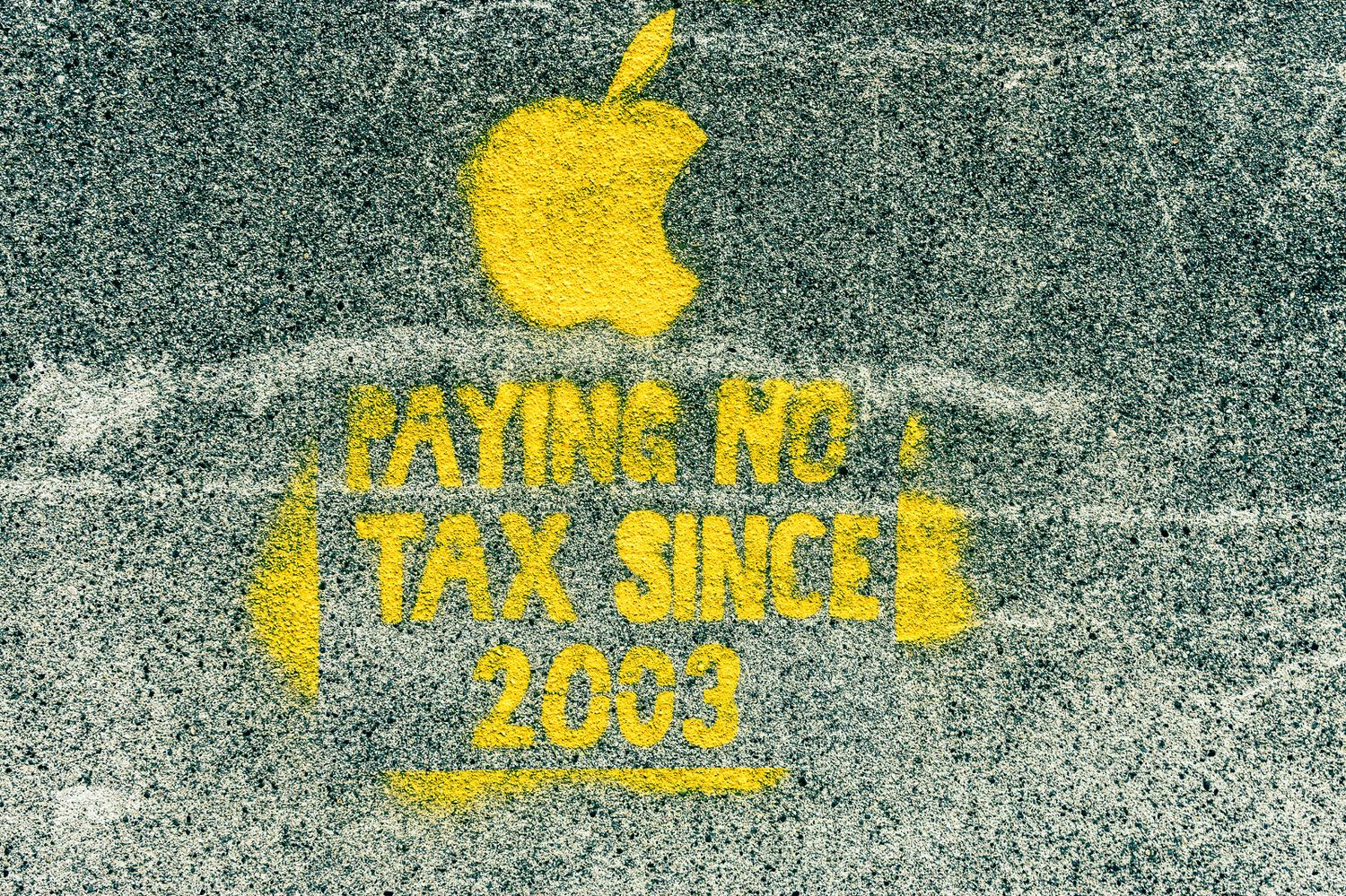Liberating fascination becomes a nightmare.
- It's 1994, because I've written a report about what they say is the Internet. It's like I'm talking about the eleventh artifact of Jules Verne. The network of networks has already begun to function at the level of society, even modestly. Few of you can imagine the revolution you're going to bring. Is it the modem we know and the next grade of the CD-ROM that is becoming increasingly dispersed? We can't imagine what comes on top of us, but as we open the Internet window, the world is becoming clearer, as ever, to pick up what we want from there or to spread what we want there. We've never had that much information available.

For Urlie it was a golden opportunity, a very dangerous threat to Sandia. The months of age were enough for e-mails and websites to enter the first steps in companies and redactions, and then in homes by saldos.Desde a few decades ago, the digital revolution has been able to penetrate to the end of our lives, that liberating fascination of its beginnings, until it has often become a nightmare. We have analyzed the lights and shadows of these 30 years with three people who have lived this journey in different ways: Iratxe Esnaola, Ramón Zallo and Gorka Julio.
In that beginning, everything was illusion, opportunity and illusion, and the Internet immediately joined with more freedom, deepened democracy, shared knowledge… Threats have appeared over the years. To what extent has this been the case?
GORKA JULIO Yes, many of us have had that, that initial fascination is now a threat. From the beginning, he was born with a decentralized structure and his initial military field clearly saw his ability to resist better in communication or in an attack. In that sense, he began to speak about the Global People, and in addition, in the United States, alternative social movements also gave an air to that spirit. The flow of URL0, the attempt of capitalism to take advantage of a new phenomenon, also developed quite quickly, but it failed.
After this failure, it revived the communication capacity of the Internet, Indymedia, the world of blogs, the concept of Web 2.0 -- and then, again, a process of recentralization came about. That is what we are now. Google, Facebook, Amazon (and their twins in Russia and China) and these offer centralized services again, which is causing the space that, supposedly, could be lost for freedom and the guarantee of rights.
RAMÓN ZALLO. I agree with that general perspective. The Internet was a great break with the traditional culture and communication industry. On the Internet the user intervenes, has a lot to say, connects with other users without the need for media, can digitize the communications in a single signal, manage directly from home without the mediation of other media … All this makes the technology in the hands of the user, instead of being only under the ownership of capital. In this cybersphere, moreover, technology is cheap and knowledge is free for anyone.
Where do the problems start? How to take advantage of the Internet when capital does not seek. First, intellectual property owners began to get angry, and they tried to push regulatory systems to get intellectual property to bow to the rules before the digital age. Then the mass media became angry, denouncing that the Internet appropriated its content. And as a result, the market began to regulate the world of the Internet with increasing force. We are there today and, while this happens, the horizontal communications of the network are no longer in the majority. The main trend is now that of cognitive capitalism, which is going to use the data it receives from citizens through networks for the control of society; otherwise, that society that owns technology can escape its hands.
IRATXE Esnaola I agree with everything I have said. For me, the Internet is that dream that has not been fulfilled. In all that the Internet could provide, a process of democratisation could be deepened, but the logic of the market has been imposed on the logic of democracy. From 2007 to 2008 this became very clear and began to diminish collaboration among users, shifting this energy to social networks or other areas. That is why the Internet is no longer what it could be, nor is it going to be.
Let's go deeper into the dark side of the Internet.
I. ESNAOLA The Internet is getting smarter and spy. These are their darkest aspects. Despite its technical decentralisation, it drives an increasingly centralised, increasingly monopolistic and controlled economy. At the same time, it has reinforced the individual’s vision in society and, therefore, the social and economic contribution of the Internet is rather negative.
Dr. G. JULY. I won't be that negative. I very much liked that ‘unfulfilled dream’ that Iratxe said and, furthermore, it has become a nightmare, but the initial potential is there and, although it is realistic, I do not want to lose it entirely. At the moment, it remains a distributed network, but it is true that most users go through specific points to basically control them. It's cheaper to go through those dots, and that's no coincidence, that's what you're looking for.
Today, there are two perspectives to represent that Internet of the future, but both are dystopian. One is the technical solution, according to which technology can solve everything, and it also proposes to delve into developmentalism. The other is techno-authoritarianism, techno-fascism, which is possible for the first time in history. In other words, it is almost possible to channel the lives of thousands of people from an office.
I find very interesting the book that Nick Srnic has written to deal with what has been called the platform's capitalism. I think the key is there, we have to put our weight on the realisation of that dream, some uses of technology, in the face of the artificial shortage of the system, can be put in place from the logic of prosperity; I do not want to lose everything.
Oh my God! ZALLO. We're in the middle of the dark era of the Internet, but I don't think the potential for empowering technologies to deal with platforms has gone away. Here we were promised some values and they have become lights and shadows. We were told that the user would be the center and it's not true, but we're better than in the analogue era, because we can also manage information and culture by communicating with anyone in the world, among other things. Potentiality is there. We were told that the interaction between users would form a new and more enriching form of socialization, deepening the knowledge society, but it has not been so, we are in the post-truth era, in the time of tender speeches. In the early years of the 2000s, several platforms and alliances have been created between users, which joined the restrictive regulations and the mass media. But that has changed, have big tech companies already come to an agreement with the big media? What is it? Technology donors acknowledge that content providers are the media that pay for the intermediation work of technology providers. These tech companies have users tied up; someone on Facebook can't escape with all of their content, there's everything that's tied up, like ass to the chain.
In addition, the world of capital sees very well that these cumulative databases are a source of value for the future. These data allow us to be transparent, but they're obscure about their use, and today there's no system to regulate it; among other things, they're used to bombard us with advertising or to get grandpa's state to collect data about us. As a result, we are increasingly closer to digital authoritarianism.
.jpg)
The accumulation of knowledge can be the other side of the coin. The network has made the highest level of knowledge in history available to citizens. That, potentially, is also very subversive. For journalist and writer Paul Mason, for example, capitalism can also be a way of overcoming. In his opinion, the technology used in collaboration in the network already generates goods and services, but only these are useful if they are distributed “and that is what defines the route to leave the market system”.
Dr. G. JULY. That is possible, but at least it requires a condition: that what is generated in that way cannot become private property. If what is produced in this way falls within the realm of the commons – going beyond the concept of the public – and overcomes the private sphere, that can happen. Some authors are anticipating new forms of production based on this model. There would be free warehouses full of knowledge and products, and from them the possibilities of generating whatever you want. There is, for example, the Open Source Ecology, where a people or a civilization has all the instruments it needs, within reach of everything: making plans, machines, tractors… anything. On the Internet, there are already sites like free software or Wikipedia that can be tools to overcome the system, but collaboration is not only that, but you necessarily have to resort to properties beyond private property.
Oh my God! ZALLO. I am already an old dog and at this point I am more pessimistic. Capitalism is constantly transformed and its spaces are expanding. We are now in the era of cognitive capitalism. So far, for example, it was very difficult to bring intangible assets into the property law, but capitalism has also done so: through patents, with “R&D” or now paying Netflix the content users already hacked. That is, the property of the contents is rented more and more, not bought but used, because it is cheap. They are controlling the ownership of the contents and in different ways they have found the profitability that is essential to their survival.
This does not mean that users do not meet in search of collaborative solutions. This door is open and, moreover, more than in the analogue era. But capitalism has put the stacks in order to be able to manage the immaterial world, also creating benefits. So far it did not succeed and now it does so through the monopolies, which, moreover, do not allow them to compete in their respective fields, but buy it and it is already there. In this area, therefore, it is inevitable to include the regulator, that is, through the division of institutions, companies or the imposition of fines. In addition to what people can do, the work that law has to do is also very important.
I. ESNAOLA My reflection is more about social cohesion and the differences in the dissemination of knowledge, because half of the planet is not connected to the Internet, it is out of that knowledge. The Internet will still have the potential for change, but today, the main objective of the information and knowledge society is the democratization of knowledge.
Like Euskal Herria, we have great challenges in that direction and I believe that digital literacy is closely linked to internet penetration and the real knowledge society.
Oh my God! ZALLO. All of this, moreover, is very complicated by artificial intelligence and the situation, instead of solving it, is going to be twisted, because that field of technology is not going to socialize tenderly. The users got sold out on this.
Going further down the information world, in its beginnings, the small media also got closer to the larger media with the Internet. So the level of horizontality that has been gained is currently lost or remains a trace yet?
Oh my God! ZALLO. The big media has been caught up in the crisis, as the internet information was free and the user was not willing to pay it. And through that crisis gap came the small media outlets, some of them coming out of the layoffs of the big ones and doing a very good journalism. The reaction of the big ones has been to give the financial capital into their boards of directors, allowing them to directly control the information. On the other hand, the big media and the alliance of the big technology companies are also moving in that direction. Meanwhile, small media survives and many users have the information they want to find, but these media are still out of television or publishing systems that go beyond amateurism, regardless of the production of series and similar productions.
Dr. G. JULY. At the beginning of the media crisis there was an explosion of blogs, some related to journalism and most not. The press was threatened by this content creation and blogs were relegated. From there we have switched to social networks, but in them the new media and the old again mediate, reinforcing their information agenda. In Euskal Herria a special response has been given to the crisis and the contribution of the citizens has been very important to maintain the new situation, as in the case of Berria, or as in the case of ARGIA, a community builder. We also have shortcomings, including the Basque information agenda, or the difficulties in collaborating to expand our impact… Lander Arbelaitz has talked about information sovereignty in ARGIA and I think it is appropriate to deepen this concept in order to control our information from here.
Oh my God! ZALLO. As for the information agenda, we are very dependent on those who come from the state and from other major channels. We also have a level of capacity to create our own, but we don't stay alone and participate in what comes from the state. In the world of television and radio we have been very small, in the face of this wave that comes from outside and that we have a bit of a hard time in the press, but the external agencies come in smoothly through their usual channels.
Iratxe, Puntu.Eus and you have been a lot in the Basque community. How do you see it on the internet?
I. ESNAOLA I think we have great challenges, but, given our capacity, we are responding quite well. For example, if we do searches in Euskera, it's not easy to find what we're looking for, and that's why, in general, we're looking for little in Euskera. Therefore, there is a great challenge: that the Basque country be available on the Internet. But so far we have responded well, and in the future I am also optimistic in this respect.
.jpg)
Dr. G. JULY. In Wikipedia, for example, we're very well-positioned, depending on our size. Also looking at some tools that work the language: morphological scholars, translators… in which we are also pretty good. But if you look at the amount of content in Euskera, then we're in a risk group. I think we have to multiply what we do today at the content level by ten. Now we have to look very carefully at what is called digital humanism, so that we can take the steps we need; if we do not, someone will do it for us.
Oh my God! ZALLO. I also believe that the Basque community strongly started the challenge of the Internet and that has led us to a good position. These are people who develop well in Basque and Spanish, educated people, who have been able to create a social relationship, to form a community and to raise awareness among a whole generation. Of course, the world is pushing now, but at least we have organized that space so far.
The age of the Internet is also of television, radio, databases, 5G… looking at all that, we are lagging behind, especially if we compare ourselves with other societies that have the State. I do not know if we will one day have a state, but I do not believe that we are no longer like a state with what we have. Look at what has happened with Euskaltel, it was privatized and, therefore, we have run out of this top-notch technological tool for technological experimentation. What the Government did with this is unforgivable, unless it is now rescued, but I do not think it will.
Dr. G. JULY. The funds that have now been acquired by Euskaltel do not care about our community. The loss has been enormous, and in one way or another, that should be resolved. I don't see a lot of people worried about these things. There was also the idea that the Catalans had a neutral point, but it was not possible to maintain it, and now either we left the node of the Catalans to the network or the cables that Microsoft and these have put to cross the Atlantic.
Oh my God! ZALLO. The abandonment of the Basque Government’s communication policy comes from a long way. We have no audiovisual communication laws, since 1983 we have been without the reform of EITB, we have not managed the local televisions, we have not asked for new multiples to share with Navarra… And we have let our biggest jewel, Euskaltel. A neoliberal policy has been made. There is no general cultural strategy or plan, and in that situation, the market regulates it and the Government cooperates. This debate has been going on for a long time in Catalonia. July, you mentioned the first information sovereignty, but that is why technological sovereignty is essential and there is no such debate in the institutions here.
I. ESNAOLA The digital strategy must necessarily be present in a country’s priorities. It is a great mistake today that not only are there authorities thinking about it. Yes, we talk about it in the Department of Education, or in others, but not thinking globally. As a society, we have to discuss where we want to be digitally, but I think it's very serious that we don't do that in the institutions. We have not been avant-garde on that. Technology should be in favour of the economic and social development of a country, but in our case it is not.
Dr. G. JULY. There is no clear line with the digital strategy, but the worst thing is that we do not expect it. It would require a lot of things: to provide resources and recognition to those who are already working, the same level of connectivity in all territories, a proper legal framework to channel all of this, to build a line of defense before big corporations … Microsoft and Google have begun to brutally meddle in our educational system and no one stops it, quite the opposite.
I. ESNAOLA Denmark has a digital embassy to channel relations with these large corporations.
Oh my God! ZALLO. Here's a big problem with doing things right: we don't have competencies in telecommunications policy, they're state-owned. They let us be telephone operators, and from there came Euskaltel. Are you going to be in the competences of the new status? Will it not be the first time the state has cleared it? The State does not want to leave strategic resources of this kind and that is key to carrying out any kind of technological sovereignty. Many things can be done, but first we need a social debate as big as the one we are doing now, because we are playing the Basque culture or the content that is going to be traded in our people.
I'd also like to talk a little bit about social media that are so important today. Regarding the use of social networks by the president of EE.UU, Ramon, Donald Trump, in one of his works says: “This use is an announcement of the era of post-democracy and digital barbarity.” Why?
Oh my God! ZALLO. Trump uses social media to govern, announces what he has to do on networks, compromising his government’s action, circumventing the rules of democracy and marking the global agenda. It uses globalization to launch its messages to the world through social media, but not for the sake of the world, but for protecting its country at the nationalist level. Trump is an example of how one can control thought from the power charism; that is, Trump is one of the models of destructive leadership that can be created in the digital age.
I. ESNAOLA Social networks have many positive features that should be taken into account, but they are not the ones that are emerging. According to the research being carried out, they do not improve relationships among people, reduce the capacity for empathy, hinder face-to-face relationships among adolescents... Everything has been incredibly fast and we have not had time to reflect on its use, and adolescents are suffering a lot with this lack of reflection. I'm not saying they're not being used, but they're not helping to improve interpersonal relationships.
Dr. G. JULY. With centralized social networks, they gain great control of large sections of the population, but also in a segmented way, knowing the tastes of certain audiences, etc. That is very difficult and has never happened. This is cunning. In addition, engineering is promoting dependency on these applications. For example, and this is very measured, we're taken out of sleep; or when we're on the net, we have a sense of happiness, but over time it's disappearing and we feel bad, like the drug addict, if we get the drug in, but it knows it's getting bad and it doesn't enjoy. Weak ties are created on social networks, but that's how you start in different areas, and then that leads to a stronger relationship in another area, and sometimes face-to-face. I am interested in this difference.
Oh my God! ZALLO. With social networks, abstract thinking is diluted and thought is more sensory. Yes, dialogue is increasing, but eventually tribes are formed with similar thinking, so we're talking about equals. What worries me most, though, is the loss of critical thinking and context. The most brutal thought is imposed on the networks, the debate and the nuance are lost and the culture “likes or not” is imposed.
.jpg)
The GAFAM (Google, Amazon, Facebook, Apple and Microsoft) is there. And along with them, Netflix, Uber, Airbnb, Glovo -- the platform is called capitalism, and they're hugely increasing control and oppression. How do you see them?
I. ESNAOLA We have said that the internet was decentralized, that it did not have a nucleus… but the economy that has revolved around it is totally centralized, controlled and monopolistic. It's the economy of the single winner, the little ones have no place. Silicon Valley is the lever of this capitalism where rich and white men, with the help of venture capital, dig deeper into the idea of that single victor. This activity has also been called the creation of destruction: acting in a regulated sector, acting in an illegal or unregulated area and dominating it.
This is a way to remake and strengthen capitalism, and my question is: under what conditions? Amazon generates very few jobs, and in 2012, for example, it destroyed more than 27,000 jobs in the United States. They generate little employment and, in addition, articulated on the Internet, they create an unstructured space in relation to labor relations. In addition, jobs are very precarious and this precariousness tends to perpetuate itself. Strict regulations will have to be created to regulate the control of airbnb, Uber, etc.
Dr. G. JULY. I differentiate two areas. On the one hand there are Airbnb, Glovo and these. I believe that in this area we must be very serious and the areas in which we act will disappear as they are regulated. Another thing is Google, Amazon, Netflix and those, their paradigm is going to last longer; and, of course, the struggle is against both paradigms. This is a new narrowing of neoliberalism based on the same basis: one, the attempt to counter the regulated areas by breaking social consensus and rights; two, the investments of public funds in knowledge over the years; and three, in tax fraud.
Oh my God! ZALLO. Capitalism, I place it within cognitive capitalism, based on information, knowledge and the management of intangibles. And behind all of these changes that capitalism is undergoing, is financial capitalism, all of them in motion. In this neoliberalism, a series of frankenstein are being created that individually control all strategic areas, always based on information and making information a hyper-economic resource. But all that is, at the same time, the destruction of the market.
It is therefore essential that the State, the regulatory rules, intervene and channel the situation. If the only agent destroys competitors and controls innovation, it will destroy innovation capacity. The European Union has almost confined itself to imposing a few fines so far, while these giant companies have done themselves with a market and see who is now taking away the patents they have acquired.
It is therefore time for the institutions to move seriously. Municipalities, for example, can work in different areas. I am not sure what the legal situation is, but municipalities can have networks – they have had some – and offer services. As in the field of electricity, but on the Internet, this would make many services cheaper. These processes should be supported by Governments and supported by technologically dressed tribes.
Many sectors of the world want to give community meaning to the Internet. The cooperative platform opposes the capitalism platform. Are these realities of collaboration developing with the necessary strength? July you, for example, talked about Guifi.net.
Dr. G. JULY. There are several ideas and ways to face the “monster”. I lack analysis beyond liberalism, from the point of view of the alternative. Guifi.net is there. This is not perfect, but it shows that we can all participate in the creation of free and neutral common licences and networks. These networks can be done in many ways, for example through municipal ordinances. In the end, through the cooperative platform or other cooperative models, we can access current services, but from another perspective. There's also something like Airbnb. Fairbnb. In the area of Glovo is Mensacas in Catalonia and La Pájara in Madrid, which are using the free technology created by the French Coopcycle. In many other areas, the same can be done, but cooperation between the public, cooperative and Community sectors is essential if this is to be promoted. I believe that the public-private approach must be broken and the public-cooperative Community must be strengthened. This requires the strengthening of the public, the promotion of the cooperative and the structuring of the community, along with a loss of power or marginalization of the strict private sphere.
Oh my God! ZALLO. That is what I agree with July. From the point of view of sovereignty, a number of areas can be promoted in order to strengthen self-shaping civil society, including technological sovereignty. From the public sphere we hear on numerous occasions that “we do not have to fatten the public space anymore”, but that then we push in the strict sense all that non-private world, that society that drives the auzolan.
In addition, the strategy of RIS3 [Research and Innovation + Strategy, Intelligence and Specialization, English to Euskera] is being promoted in government strategies, but in them everything that is communication and digital appears in a separate section, is not at the center of RIS3, and today we all know the strategic importance it has. All this is focusing on the usual business environment, and it is time to socialise all this knowledge in society as a whole, even more so when today’s society understands this area more than ever before.
Dr. G. JULY. Looking at the Basque Country, the drama of RIS3 is that Euskal Herria is divided: CAPV, Navarra and Iparralde. I am rather critical of RIS3: I am not going to go into this issue now, but the truth is that not only is there no RIS3 for the whole of the Basque Country, but it is also a model that enhances competition between territories, but also deepens an empowering local development.
.jpg)
Oh my God! ZALLO. Yes, of course, we have no state, but that is the reality and we have to start from there to change the situation. In the case of RIS3, the community of Euskal Herria can be promoted, but to do so, the will of the institutions is needed, much greater than we have today, for example, a joint body of the three communities. There is room for progress between the three communities, but we have to believe it.
As for content, that's the philosophy of free content, Creative Commons licenses, etc. Do you think we are using these tools correctly to strengthen the Basque Country and the Basque community?
I. ESNAOLA Many of the public content, such as those on television, or those with subsidies, is not yet public. And public institutions also don't use copyleft or other free-content licenses. It is a debate that goes far, but that must necessarily be done within the digital strategy.
Dr. G. JULY. The content generated as a result of policies promoted by public institutions, or also by militant areas, should benefit everyone. For example, it is a mistake that after five years, the book that has been created with public subsidies is not available on the Internet for public use. Wikipedia is very good, among other things because it drinks from sources that use free licenses, such as the media. It's good to have free licenses, but in addition, we have to believe in these and use them, the more the content expands, the better. Obviously, creators must also be financed, both in the creation of information and in cultural creation. The debate is about to take place, but it is essential to deepen the models that make the habitability of cultural workers and creators possible.
Oh my God! ZALLO. I've written a little bit about copyright and I've proposed a formula, but in view of the picture, I don't think it's possible either [ironically says Zallo]. In principle, this is a three-part formula. In the first part, the author would get his benefits from the market in a reasonable time – not with the current 40 years, which mean that in practice these contents become almost inaccessible goods. Another part belongs to the scope of subsidies, which should force the content to be released. Finally, the other third would be tax, and what is achieved from that should be used to consolidate a large cultural fund. Another model would be possible, but rather bad at present, taking into account the concept of intellectual property that states have. The European Union, for example, is imposing its model.
And here what? A number of initiatives can be encouraged. For example, you have to do the Basque National Library: We started working in the Basque Government in 2003, then it has been standing for years and now it is putting the project back in place… sixteen years later! Other: A database of all that has to do with Euskal Herria; those contents are very dispersed, and agreements should be reached so that everything is a platform of knowledge that has to do with Euskal Herria. Promoting the public use of everything that is generated through subvenciones.Somos a small people and everything we can do on the path of digital knowledge sovereignty is welcome, even more so, it is essential that the management of our knowledge be done by ourselves, because otherwise others will. We have to channel it between everyone, and the institutions in the head, but unfortunately, the priorities are not in that area of knowledge.
What can each of us do, what do we have to ask of governance to drive the positive side of the Internet and banish the dark?
Oh my God! ZALLO. There are issues that are fundamental so that we can gradually begin to turn the situation around. One, we don't have a national news agency yet. To be public, I would have to hang on with EITB, but to be public, I would have to work with total autonomy and quality journalism. Two, we don't have a communication law yet, and in the digital age, that's fundamental to defining the communicative areas of the future. Three, we also have no definition of the EU’s digital services directive, especially audiovisual services, which would allow us to build a framework of self-protection, which would be above state competences, because the EU directly grants us these competences. And four, we don't have an audiovisual and digital media council, to observe those worlds, most European states have it, but Spain doesn't. The entry into force of these four components makes it possible to reach a turning point.
I. ESNAOLA For me, the management of people's data is very important. There's an interesting experience. Barcelona Data Commons. It would manage all the digital data of the city’s citizens, taking into account their privacy. Even now, from the point of view of knowledge and modernisation, it is very important that in our country all citizens have the opportunity to access the Internet connection. As a people, it is a key and starting point for our social cohesion. We should also have a space to talk about cybersecurity. At the round table we agree on the need for a digital strategy as a country, and I am very pleased about that. We have enough knowledge to build a responsible and ethical digital country, and we should open up spaces to talk about it.
Dr. G. JULY. We need a space, an institution, something to talk about digital humanism; and within it, education must be of particular importance. Furthermore, we cannot always be on the lookout for the public and the institutions, and I believe that we must begin to organise the cooperative and digital ecosystem of our territory. The digital world is global, yes, but that is organised in a concrete way in each territory, and it is high time that here too, in the socio-economic sphere and in other areas, we were able to organize and develop strategies.
Finally, in the area of privacy and security, there is a concept that I like: public health. That is, a person can make bad decisions: drinking a lot, jumping off the bridge… but the public health problem is not that of individuals. Vaccines have greatly reduced the impact of many diseases, and this should be done in a similar way in the digital field. In other words, concrete public policies must be put in place to deal with the harmful elements that exist in this area, so that they do not go further, are eliminated or, at least, are reduced.
.jpg)
VOCALS
Iratxe Esnaola Arribilwaukee (Zarautz, 1981)
Computer Engineer and Doctor of Education. She is a professor at the University of Deusto, where she teaches in Basque. It collaborates in various media, including Gara. He was the director of the .EUS project until the release phase of the domain. In 2018 he was appointed president of the Torre Olaso Foundation and coordinates the laboratory TM eLab Euskal Herrigintza, the foundation's initiative.
Gorka Julio Hurtado (Andoain, 1982)
Computer developer, teacher, hacktibist, reviewer... It is dedicated to the formation of the community in eleven trunks, especially those that connect technology with society. He is also a co-operative of the Talaios cooperative, a professor of the LEINN degree of MU and a collaborator of many media outlets. Many of you will know him as Teketen, because that's the nickname given to him on many websites.
Ramón Zallo Elgezabal (Gernika, 1948)
Professor of Audiovisual Communication of the UPV/EHU. He is currently retired. He has published numerous articles in numerous media and has written several books, the latest Trends in Communication. Digital culture and power (Communication trends. Digital culture and power) (2016). He was an advisor to the Department of Culture of the Basque Government on communication issues at the time of lehendakari Ibarretxe between 2002 and 2009.
We know that artificial intelligence is representing many fields in human beings: comfort, speed, efficiency ... We've been led to believe that human endeavor is an obstacle to the speed needs of this capitalist world. The aggressions to reduce our chances of doing, doing and... [+]
On November 15, we will celebrate in Errenteria-Orereta the three days organized by the different agents that make up Euskal Herria Digitala. This is a feminist digital self-defense workshop and a talk about democratic digitalisation.
The members of Movie Tech will offer the... [+]









